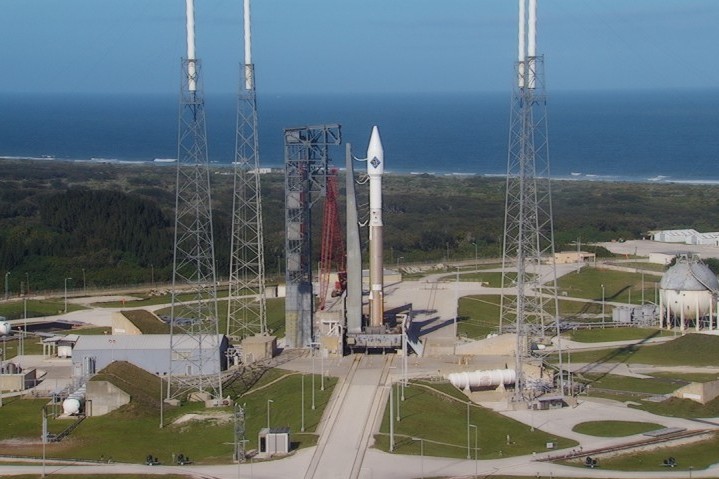-
Tips for becoming a good boxer - November 6, 2020
-
7 expert tips for making your hens night a memorable one - November 6, 2020
-
5 reasons to host your Christmas party on a cruise boat - November 6, 2020
-
What to do when you’re charged with a crime - November 6, 2020
-
Should you get one or multiple dogs? Here’s all you need to know - November 3, 2020
-
A Guide: How to Build Your Very Own Magic Mirror - February 14, 2019
-
Our Top Inspirational Baseball Stars - November 24, 2018
-
Five Tech Tools That Will Help You Turn Your Blog into a Business - November 24, 2018
-
How to Indulge on Vacation without Expanding Your Waist - November 9, 2018
-
5 Strategies for Businesses to Appeal to Today’s Increasingly Mobile-Crazed Customers - November 9, 2018
Weather improves for commercial space station delivery, launch delayed 3 times
The Atlas V rocket lifted off from Cape Canaveral Air Force Station on Sunday after three days of delays due to poor weather.
Advertisement
The latest commercial resupply mission to the International Space Station blasted off from Cape Canaveral Sunday afternoon with a hefty load of nearly 8,000 pounds of much-needed food, sundries, hardware and science experiments.
Within minutes of the launch, astronaut Scott Kelly posted a picture on Twitter of the rocket headed to where he is on the International Space Station anxiously awaiting its arrival.
There have been three failed attempts since Thursday last week and after launch windows delayed on Thursday and Friday, launch directors and managers have only been anticipating a 20 percent chance of good weather conditions and made a decision to stop the countdown three hours before the countdown on Saturday before fueling the Atlas V rocket of United Launch Alliance.
If the Orbital ATK cargo ship arrives at the space station Wednesday as planned, it will represent the first US delivery in almost eight months.
The ULA Atlas V rocket will liftoff on the CRS-4 resupply mission with the private Orbital ATK Cygnus spacecraft under a commercial resupply services (CRS) contract to NASA.
An Orbital rocket exploded on a supply run in October 2014, while SpaceX suffered a launch failure in June.
In addition to food, clothing, crew supplies, spare parts and equipment, the Cygnus spacecraft is carrying science experiments to expand the research capability of the Expedition 45 and 46 crew members aboard the orbiting laboratory. A Cygnus last reached the station in July 2014.
NASA hired out station supply and crew missions to industry, for billions of dollars, as its 30-year shuttle program wound down. Orbital ATK’s engineering team confirmed that reliable communications has been established and that the vehicle’s solar arrays are fully deployed, providing the necessary electrical power to operate the spacecraft.
Orbital bought another company’s rocket, the veteran Atlas 5, for this supply mission.
A new microsatellite deployment system and a microsatellite will be sent to the ISS for the first time and will have to be floated through the station for deployment out of an airlock.
NASA is anxious to get its commercial supply chain moving again.
Orbital plans to use another Atlas rocket for a supply run in March, then return its own Antares rocket to flight from Virginia in May.
Advertisement
Cygnus is named the “SS Deke Slayton II” in memory of Deke Slayton, one of the America’s original seven Mercury astronauts.




























